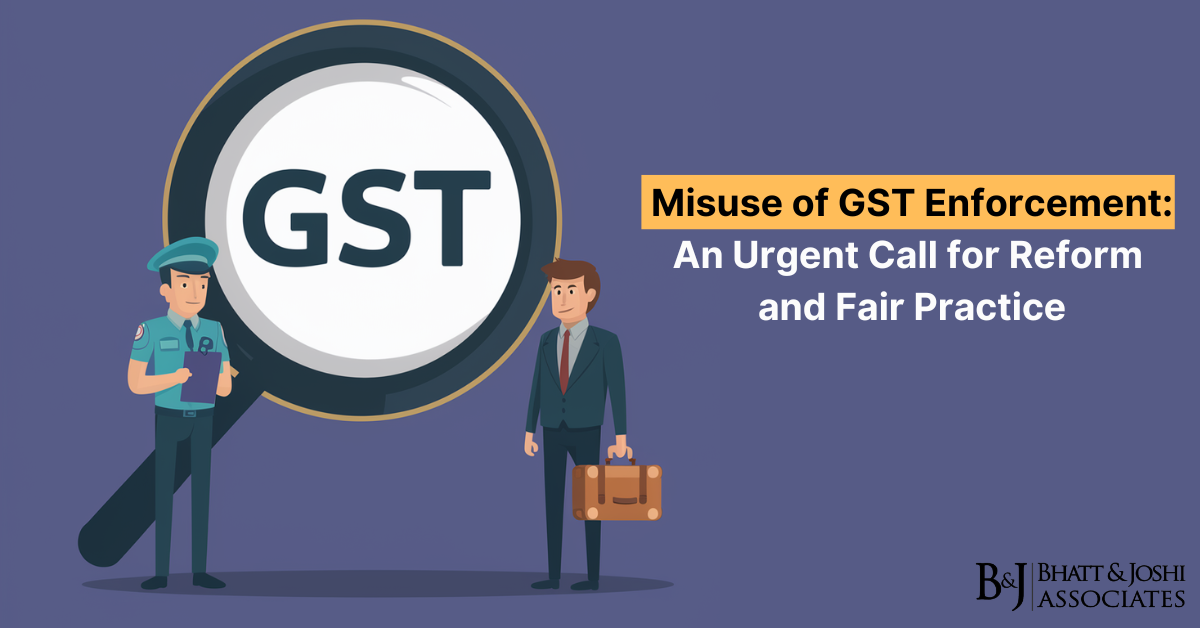Introduction
The Goods and Services Tax (GST) was introduced to simplify the tax framework and foster ease of doing business by unifying the tax structure across India. However, the enforcement of GST has revealed significant challenges, particularly with misuse of GST enforcement practices by some tax officers, leading to unwarranted harassment of businesses and disruptions in operations.
The Issue with GST Enforcement Practices: Urgent Need for Reform
Instances of GST enforcement overreach have raised significant concerns within the industrial and business communities. Reports have emerged of goods being detained under dubious pretenses, businesses facing unreasonable demands, and a prevailing atmosphere of mistrust between taxpayers and authorities. These practices not only contravene the spirit of GST but also undermine the economic principles it seeks to promote.
Examples of Enforcement Excesses:
- Unwarranted Detention for Non-supply Movements: There are cases where goods moved for legitimate reasons, such as weighment within a 20 km radius, are unlawfully detained under suspicion of ‘clandestine removal’. Tax officers demand extensive documentation without legal authority, showcasing harassment tactics.
- Faulty Allegations Regarding Invoice Non-compliance: Officers incorrectly claim invoice non-compliance despite evidence to the contrary. Instances suggest deliberate document manipulation to fabricate errors, indicating harassment tactics.
- Delayed Release of Detained Goods: Goods detained must be released within three days, but this is often disregarded, leading to extended detentions and significant business losses.
- Ignoring Communication from Taxpayers: GST officers refuse to acknowledge official communications from taxpayers, exacerbating concerns about malpractices and ulterior motives.
Examples of Misused GST Enforcement Practices: A Call for Reform
- Enhanced Transparency and Fair Enforcement: Clear, transparent guidelines must prevent officers from misusing their authority, with every action fully documented and communicated.
- Accountability for Misconduct: Officers engaging in harassment or misuse of power should face strict penalties, with an independent oversight committee monitoring behaviors.
- Immediate Correctional Steps: Guidelines set by the GST Council and higher judicial authorities must be rigorously enforced, with officers trained to adhere scrupulously.
- Strengthen Communication Channels: Authorities should ensure all taxpayer communications are acknowledged and recorded to prevent misunderstandings and facilitate dispute resolution.
Conclusion
The challenges posed by current GST enforcement practices deviate significantly from the tax reform’s objectives. Reforming enforcement practices to uphold fairness, transparency, and respect for the law is crucial for the integrity and success of the GST spectrum. Balancing the needs of businesses and tax authorities through concerted efforts and adherence to legal standards is essential for GST to fulfill its promise as a catalyst for economic growth and fairness.














